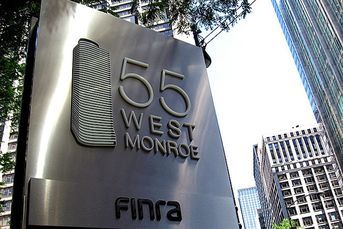SEC eyes opening up private placements
Despite the fact that investors have lost billions of dollars in private placements that have blown up in recent years, the SEC last week said that it is looking to relax rules that regulate the marketing and sale of these offerings
Despite the fact that investors have lost billions of dollars in private placements that have blown up in recent years, the SEC last week said that it is looking to relax rules that regulate the marketing and sale of these offerings.
Securities and Exchange Commission Chairman Mary Schapiro told the House Committee on Oversight and Government Reform that her staff is considering whether the SEC should revisit the ban on public marketing of private placements as part of an overall review of securities regulation. So-called Regulation D offerings are exempt from SEC registration and are required to disclose far less information than that supplied by companies registering for an initial public offering.
“Companies seeking access to capital should not be overburdened by unnecessary or superfluous regulations,” Ms. Schapiro testified.
The issue is being raised in the wake of Facebook’s controversial private placement. In January, The Goldman Sachs Group Inc. raised $1 billion on behalf of the social-media company but barred U.S. investors from the sale because the firm was afraid the media frenzy surrounding the deal would put it in violation of rules banning public marketing of such offerings.
The SEC’s decision to revisit its private-placement rules flies in the face of efforts by another regulator, the Financial Industry Regulatory Authority Inc., to crack down on private placements.
Finra recently came down hard on firms and executives who sold a series of offerings that the SEC in 2009 charged with fraud. Last month, Finra fined two firms and seven executives for selling private placements without conducting reasonable due diligence.
The private placements in question were issued by Medical Capital Holdings Inc. and Provident Royalties LLC. Combined, the two companies sold about $2.7 billion in offerings through dozens of independent broker-dealers, some of whom have gone out of business or are for sale because of investor losses.
Finra also has recently made rule proposals that would increase the level of reporting of sales of private placements for certain broker-dealers.
That two regulators are seemingly at odds could be an indication of the “left hand not knowing what the right hand is doing,” said Paula Miterko, a due-diligence analyst who specializes in private placements and other alternative investments. That said, “just because [the SEC] formed a committee and said they would review it — that could be to appease certain people.”
Still, Finra’s efforts to crack down on private placement sales and the SEC’s recent signals about loosening restrictions on them are an indication of the competing tensions inherent in the marketplace, other industry observers said.
With the market for private placements booming, the SEC is playing a game of catch-up with the investment industry.
“The whole issue of public marketing or permitting public advertising has been a topic for some time, particularly as the Internet has opened up public channels of discussion” for such deals, said Robert Robbins, partner and head of the corporate-securities practice at Pillsbury Winthrop Shaw Pittman. “It’s harder and harder to have an offering be truly private.”
Indeed, the SEC is considering the changes as the marketplace for “Reg D” offerings continues its expansion.
The SEC first started accepting electronic filings of Regulation D offerings in March 2009. A year later, 20,731 Reg D deals had been filed.
And from March 2010 to March 25 of this year, 25,761 Reg D offerings were filed, an increase of 24% from a year earlier. Indeed, the number of private placements is approaching the level seen in 2007, when 27,483 filings occurred.
Although private offerings such as Facebook and, potentially, Groupon Inc. get most of the attention, thousands of private deals fly under the public’s radar, the attorney said. “There are more private placements in the United States than any other form of capital raising [offerings,] and most get no attention at all,” Mr. Robbins said.
DIFFICULT TO PRICE
In addition to disclosing far less information than IPOs, Reg D offerings are illiquid and difficult to price, carrying significant risk for investors. Brokers also often get a much higher commission when selling the private placements, compared with other investments, giving them an incentive to market them aggressively.
Changes in how public and private markets operate, technology advances and the “acceleration in the pace of communications” justify a new look at the rules and whether the commission can do more to encourage capital formation, especially among small companies, Ms. Schapiro testified.
However, in an earlier letter to the chairman of the committee, she talked about the need to balance competing interests.
“Striking the right balance between facilitating access to capital by companies and protecting investors in our rules and orders is a critical goal of the SEC,” Ms. Schapiro wrote.
E-mail Liz Skinner at [email protected] and Bruce Kelly at [email protected].
Learn more about reprints and licensing for this article.




